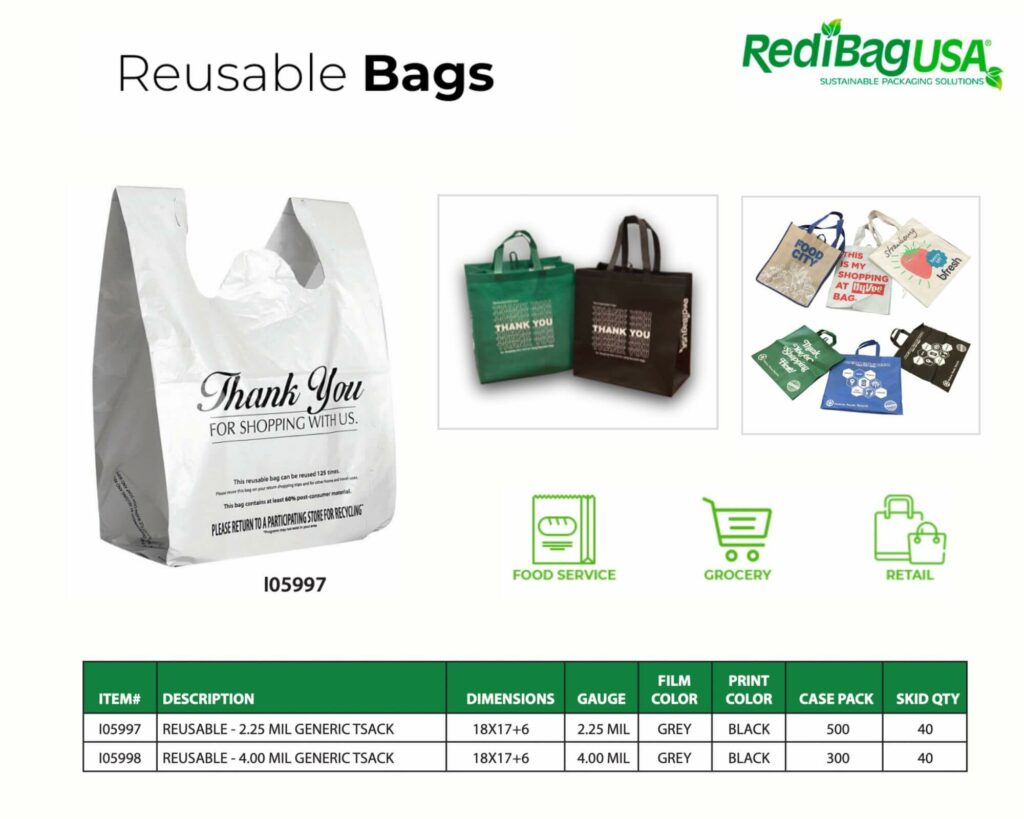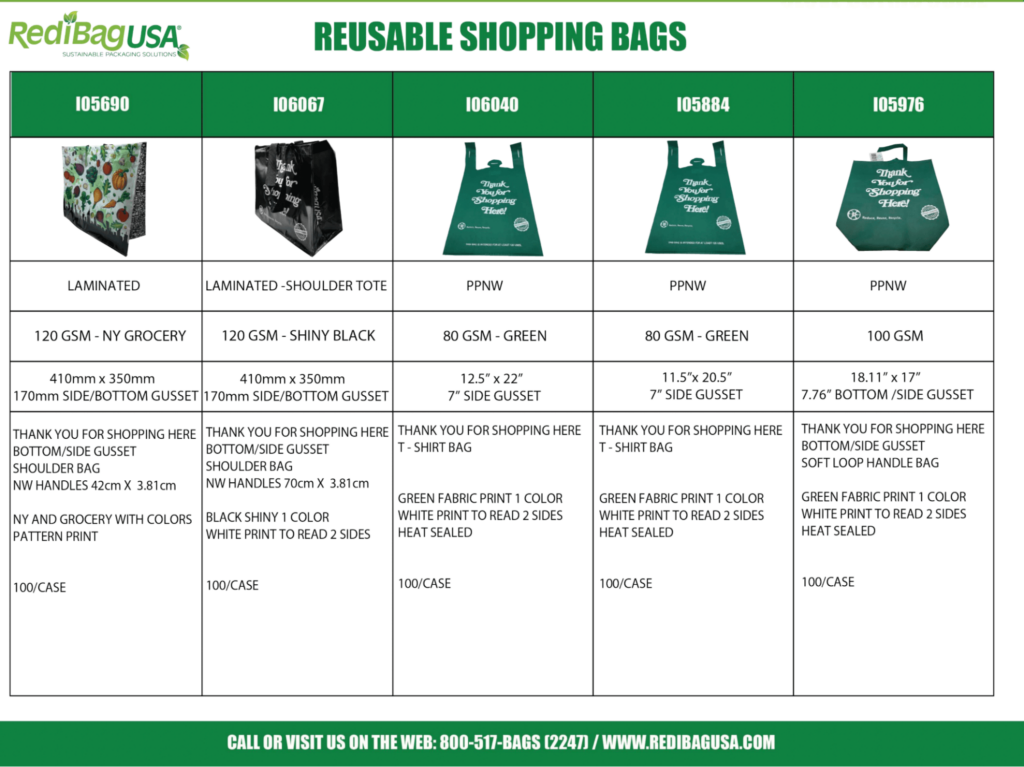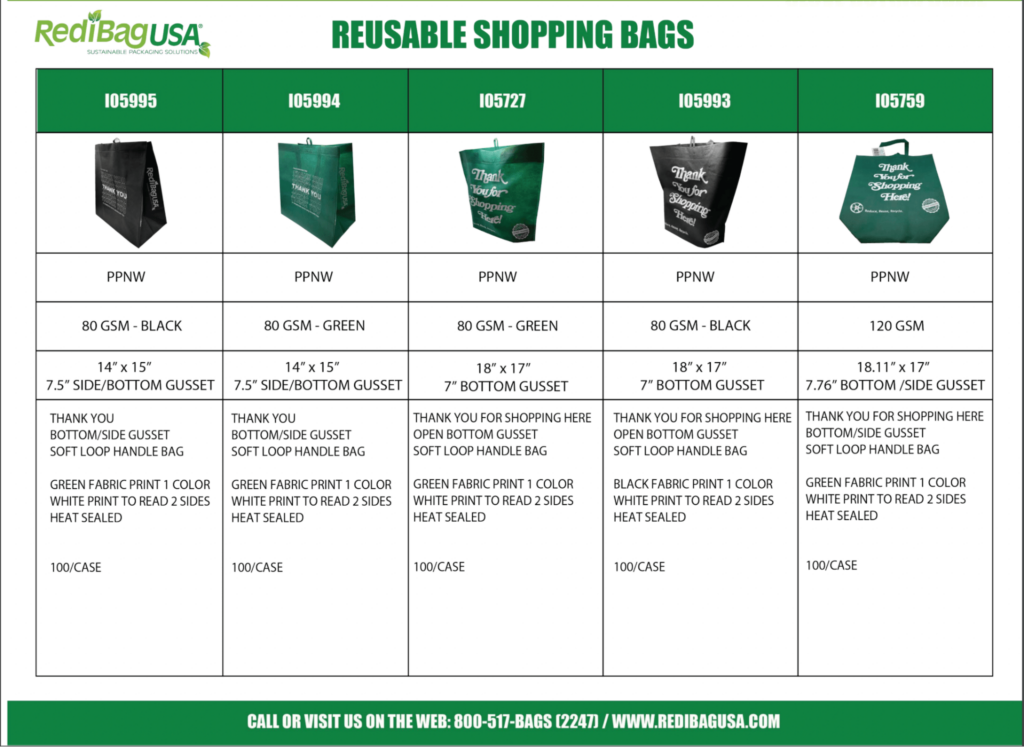What Are Reusable Bags?
Reusable bags can be any bag that’s used more than once, including paper and plastic bags. Generally speaking, canvas totes, wine bags, and cooler bags are also reusable options. It is sometimes called a bag-for-life in the UK. Do you know how many plastic bags a reusable bag can replace? Studies have shown that a reusable bag can save over 500-1000 bags a year. Reusable bags are better for the environment, reduce the resources, such as water & raw materials, required for production, and are more economical in the long run for consumers & businesses alike. Reusable bags can replace the amount of plastic around us and curb its ill effects efficiently over time.
What Are Reusable Bags Made Of?
There are a variety of materials that go behind making a reusable bag. We can broadly categorise these as
- Natural
- Synthetic
Reusable Bags made from natural materials, including jute, hemp, bamboo, and cotton. Note that the materials used must be organic- without the use of pesticides, recycled, or chemically treated.
On the other hand, synthetic materials could include woven or non-woven bags primarily made from
- Polypropylene (PP) Bags
- Recycled PET Bags
- Polyester
- Nylon
How Are Reusable Bags Made?
Reusable bags can be made from natural fibres such as cotton or jute or synthetic fibres such as nylon or polypropylene. The manufacturing process can vary depending on the type of bag, the materials used, and of course, the manufacturer. However, broadly, the process involves the following:
- Choosing the material, size, and shape
- Cutting the material into the desired configuration using machines such as a cutting press
- Putting the bag together either by weaving or sealing using heat
- Once done, zippers, handles, pockets, etc., are added.
- Digital printing & lamination is popularly carried out to emboss custom detailing such as brand logo, colours, text, and more.
- Any finishing touches, such as trimming, are done to perfect the bag, and inspection follows to ensure top-notch quality. It is then shipped to the customer.
Who Invented Reusable Bags?
The invention of reusable paper bags goes all the way back to 1852, when Francis Wolle, a schoolteacher, invented the first machine that could mass-produce paper bags. In 1912, A Minnesota grocer, Walter H. Deubner, reinforced paper with cords, added handles, and sold it to customers. He later patented these “Deubener Shopping Bags,” and reusable paper bags with handles came into being & became popular.
How Much Weight Can A Reusable Bag Hold?
While a one-time-use plastic bag can handle 17 pounds, a reusable grocery bag can easily hold around 22 pounds. These bags can cover your routine trip to a supermarket for grocery supplies. Further, bags made of heavy-duty cotton canvas are sturdier and can hold more weight than usual. The design & materials used for manufacturing naturally impact the holding capacity.
How Do You Dry Reusable Bags?
Jute/hemp reusable bags can be hand-washed or machine-washed using a gentle detergent. Non-woven Polypropylene bags can be machine-washed using soap & water & dried. Always check if the reusable bag manufacturer has added wash care instructions alongside. If it is mentioned, then it’s best to follow accordingly.
Are Reusable Bags Sustainable?
Most reusable bags are made from sustainable materials that don’t contribute to harmful & long-lasting effects on the environment. Many materials, such as hemp, jute, and bamboo, turn greenhouse gasses into oxygen and purify them rather than being another carbon-emitting machine. Such reusable bags are a finer alternative to plastic bags.
Why Are Reusable Bags Good For The Environment?
According to the US Environmental Protection Agency, only 1-3% of plastic bags are recycled in the US each year. The rest end up in landfills, oceans, and other environments. Studies show that plastic bags kill up to 100,000 marine animals annually. By switching to reusable bags, you are curbing plastic pollution to a great extent and creating a positive impact on the Earth. These bags are made from either recycled or sustainable materials that are durable but don’t harm the environment, like plastic bags.
Reusable bags are better for the environment since they:
- Are made from renewable source materials,
- Have low greenhouse emissions,
- Leave lower carbon & water footprint on Earth,
- Save energy that goes into manufacturing it.
- Reduce litter pollution that adversely impacts the environment & plant/animal lives.
Do Reusable Bags Reduce Carbon Footprint?
Plastic bags deplete natural resources & energy during their manufacturing process, while reusable bags convert greenhouse gases to purify the air & environment. While using a reusable bag reduces the water used during manufacturing, energy for transportation & production, and the landfill & litter pollution it causes. While plastic bags take a thousand years to decompose, reusable bags are the greener alternative that biodegrades from a few weeks to months.
How Long Does It Take For A Reusable Bag To Decompose?
A reusable bag, such as a jute bag, takes only a few weeks to decompose compared to the 500-1000 years a plastic bag could take. Biodegradable plastics typically take 3-6 months to decompose.
How Many Times Can You Use A Reusable Bag?
A reusable bag can have a lifespan of more than 700 disposable plastic bags. If a consumer uses reusable bags throughout their life, it could remove more than 22,000 plastic bags from the environment.
How Much Does It Cost To Make A Reusable Bag?
The cost of production for most non-woven bags typically is around 10-25 cents($0.10-0.25), but they are sold for $0.99-$3. The total cost of litter collection, disposal, and enforcement in the US is estimated to be at least $11.5 billion annually. By switching to reusable bags, we are saving the environment and curbing unnecessary spending as consumers.
Why Are Reusable Products Better?
Reusable products help combat pollution, plastic pollution in particular, reduce wastage, save water & energy that otherwise are wasted during manufacturing, are eco-friendly in terms of decomposition, and leave a lower carbon footprint than their plastic & paper counterparts.
Reusable Bags vs Recycled Bags
Although the underlying objective of using reusable and recyclable bags is to reduce the consumption of single-use items, especially the ones that harm the environment like plastic, there are many differences between the two.
- Materials: Reusable bags are made from both natural and synthetic materials such as jute, hemp, cotton, nylon, polyester, and polypropylene. However, recycled bags are made purely from materials that have been used once, such as plastic or paper.
- Usage: While reusable bags are made to last through multiple years, some even for years, a recycled bag is meant to be used once or fewer times before it is recycled again.
- Carbon Footprint: Reusable bags have lower carbon footprints than recycled ones. This is because reusable bags are made once and used thousands of times, unlike recycled bags. The footprint of recycled bags is higher due to the repeated process of recycling, manufacturing, and transportation.
- Lifespan: Reusable bags have a longer lifespan in comparison due to the better quality of raw materials used.
Are Reusable Bags Recyclable?
Although some of the materials that reusable bags are mostly made of can be recycled, they are recycled sparingly in practice. The key to getting results from reusable bags is to repeat usage long enough to impact the environment positively.
How To Store Large Reusable Shopping Bags?
Have you reached the stage where there’s a bag in your home to store all your reusable bags? Well, you aren’t alone. What do you do with too many reusable bags? How can you best use all the reusable bags lying around, then? Carry bags while going shopping. Rather than purchasing a new bag each time, reuse the same old one. You can give it to someone in need, use it around your home as a container, and send it for recycling if the material permits it. You can use a big reusable bag to store the smaller ones or neatly fold them and store them for future use.
What are Eco Bags?
Like reusable bags, eco bags are environmentally friendly and cleaner alternatives to one-time plastic bags. Eco bags are made from materials that are 100% biodegradable and are sturdier and longer lasting than usual grocery and produce bags. Most of these eco bags are also water resistant and can be used multiple times.
Is An Eco Bag Sustainable?
The materials behind eco-friendly bags come from renewable sources that cause minimal environmental damage- such as jute & bamboo bags.
The Best Reusable Sustainable Bag Manufacturer – RediBagUSA
RediBagUSA is a leading manufacturer of bags headquartered in the US. With more than six decades of experience, RedibagUSA has many patents to its credit and can efficiently cater to all packaging and storage needs of businesses of all sizes.
Along with reusable, sustainable bags, it also provides deli, produce, industrial, can liners, cooler bags etc. The sandwich bags, snack bags, and produce bags are all made from safe, non-toxic materials.
The reusable bags from RediBagUSA come in different configurations to meet your business needs. In various sizes, styles, colors and prints, these bags are available in non-woven, woven, and laminated.
RediBagUSA also manufactures reusable t-shirt bags in 2.25 and 4.00 mil offerings and is CalRecycle certified. These bags are produced using certified Post-Consumer Recycled Content of over 60%. The key benefits include the following:
- Multiple ways to carry
- Sturdy construction in 2.25 and 4.00 MIL
- Hand washable
- Can be sold retail
- Custom Artwork available

The detailed specifications of the bags are as follows.


Rely on the Experience
With a complete and diversified selection of products, RediBagUSA is the company you were searching for. We handle the production, distribution, and logistics capabilities to serve some of the world’s largest international supermarkets and quick-service restaurants.
Get in touch with us for more information about our key products and offerings, and how we can satisfy your every packaging need!
